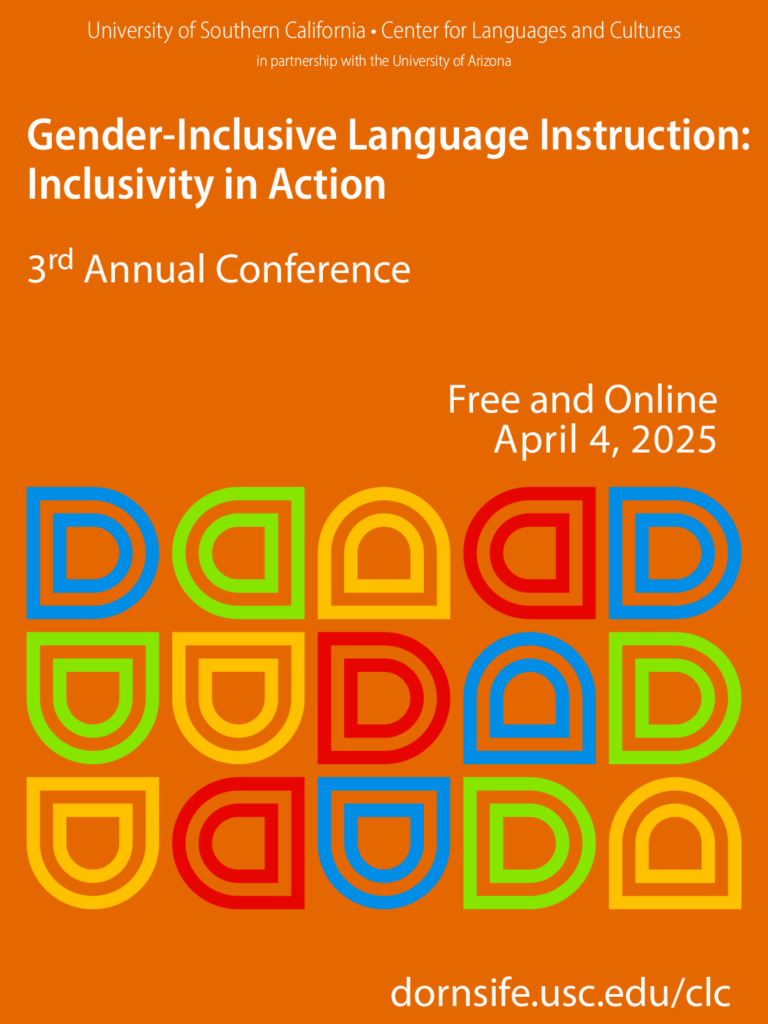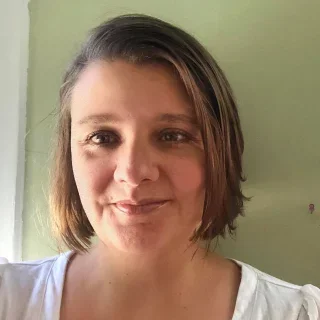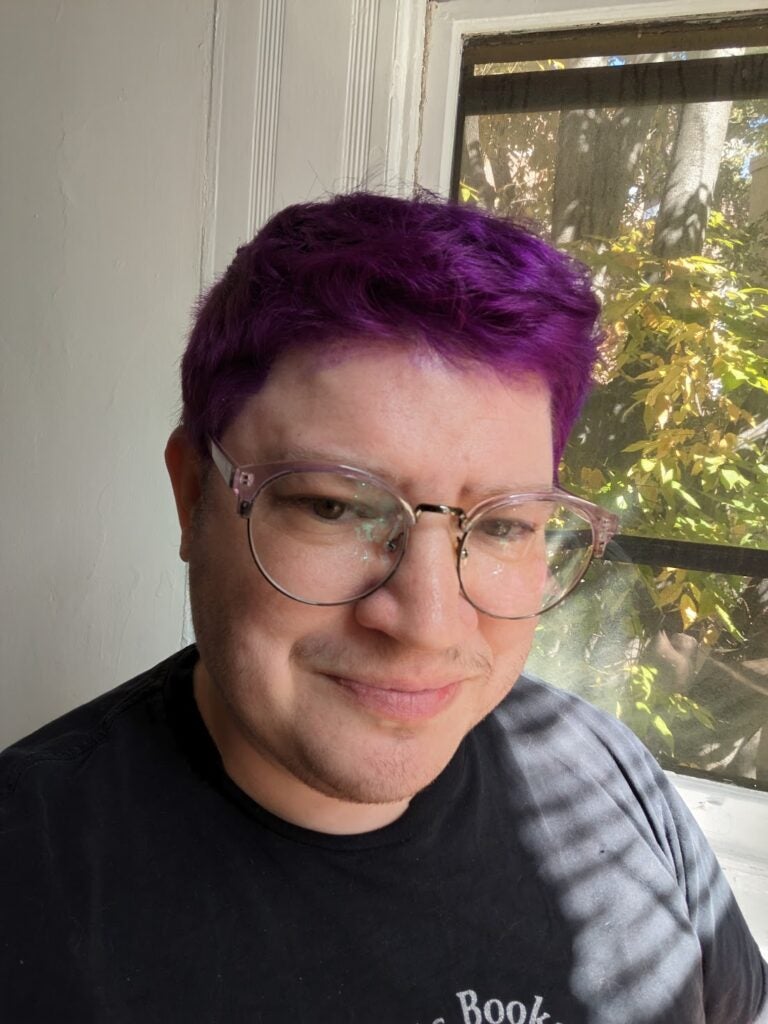
From Theory to Practice: Advancing Gender-Inclusive Language Pedagogy
Our Third Annual International Conference on Gender-Inclusive Language Instruction will take place on April 4, 2025 online.
As teachers and learners are growing increasingly aware of gender in language and in education, many are realizing how little gender-just training and materials they have had access to. This conference brings together language educators for a day of pedagogy-focused presentations to help us all bring increasingly gender-inclusive and -just language teaching into being.
This conference will serve as a dynamic platform for sharing research, showcasing justice-oriented practices, and engaging in transformative teaching demonstrations. From exploring culturally responsive pedagogies to harnessing the power of technology, this conference aims to inspire meaningful dialogue and catalyze positive change in language education.
Join us as we collectively shape the future of increasingly inclusive and just language teaching!
Register Now
Registration is free and open to all
Participants who attend two or more sessions will receive a Certificate of Attendance and an electronic badge recognizing their participation.
Full Program Available
Paper proposals were due January 10, 2025
We invite educators, researchers, and practitioners from around the globe to share their
research findings on effective gender-inclusive language teaching strategies and their impact on student learning outcomes. Additionally, we encourage submissions that highlight practices drawn from diverse educational contexts, offering insights into successful approaches for fostering more inclusive language environments. We are particularly interested in proposals that showcase
a) research findings on the effectiveness of gender-inclusive and -just language teaching strategies and their impact on student learning outcomes.
b) teaching demonstrations that illustrate practical applications of gender-inclusive and -just language pedagogies, accompanied by evidence of their efficacy. Of particular interest are teaching demonstrations on how to teach vocabulary, grammar, listening, reading, and conversation tasks inclusively. We ask that presenters demonstrate a specific assignment, students’ responses, and feedback provided.
c) insights into how AI-driven tools and platforms can enhance inclusivity and effectiveness in language learning environments, as well as their limitations.
Overall, whether through hands-on workshops, case studies, or technological innovations, we seek proposals that offer tangible insights and actionable strategies for increasing gender inclusiveness and justice in language instruction.

Keynote speaker: Maureen O. Gallagher

Keynote speaker: Kirby Conrod
Teaching the unknown genders: grassroots research for language and linguistics instructors
In instances where language instructors need to provide instruction on non-binary and gender expansive forms in a target language, there might not already be linguistics research published on what, exactly, nonbinary speakers in the target language are already doing. This talk gives some practical tips for how language instructors can conduct modest informal research, analogize off of existing linguistics research in other languages, and connect language learners to trans and non-binary language partners. The goal of the talk is to enable small grassroots research and expand the descriptive coverage and resources for nonbinary and gender expansive forms in a broader array of languages.
Dr. Kirby Conrod received their BA in Linguistics and Literature at UC Santa Cruz, and their MA and PhD in Linguistics at the University of Washington. Their dissertation, Pronouns Raising and Emerging, is a sociosyntactic analysis of a change in progress around the specific use of singular they. Their recent work focuses on nonbinary pronouns and other sociolinguistic approaches to morphosyntax. They are an assistant professor of linguistics at Swarthmore College.
The Conference is organized by the Center for Languages and Cultures at the University of Southern California in partnership with University of Arizona
Conference Organizing Committee
María Mercedes Fages Agudo, Master Lecturer in Spanish, USC
Evgeny Dengub, Professor (teaching) of Russian, Director of the Center for Languages and Cultures, USC
Jamie Fudacz, Associate Professor (teaching) of Spanish, USC
Kris Aric Knisely, Associate Professor of French and Intercultural Competence, University of Arizona
Liana Stepanyan, Professor (teaching) of Spanish, USC
Questions?
With general questions, email us at clc@dornsife.usc.edu
Gender-Inclusive Language Teaching Resources
Check out our collection of resources for gender-inclusive language classroom
Past Conferences
Watch recorded panels of the past conferences hosted by USC.